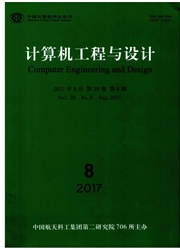

 中文摘要:
中文摘要:
无线传感器网络技术作为21世纪最有影响力的世纪技术,得到了越来越多的广泛关注,而无线传感器的能量问题,是制约无线传感器网络发展的核心问题之一.由于无线传感器的能量十分有限,因此要求尽最大可能减少能量的消耗,进而达到延长使用寿命的目的.课题从研究无线传感器节点采集到的数据开始,通过对采集到的周期数据进行分析,找出某种潜在规律,从而选择一种现有的回归模型进行下一周期的预测,如果下一采集周期的采集数据满足预测规律,则不必向汇聚节点上传数据,进而减少了数据的传送次数,节约了能量.基于回归预测算法的无线传感器数据融合是依据沈阳地区的温度数据为样本,同时应用MATLAB仿真模拟,根据模拟验证的结果表明该算法确实做到了减少数据的传输量,达到了节约传感器能量,延长了无线传感器网络寿命的目标.
 英文摘要:
英文摘要:
As the most influential technology in the 21 century,wireless sensor network technology has gained more and more attention.However,the energy of wireless sensor is the core issue which has restricted the develoPment of wireless sensor network technology.The energy of wireless network is quite limited due to its characteristics.Therefore,in order to extend the service life,people need to decrease energy consumption as much as possible.The authors start this subject by studying the data collected by the wireless sensor nodes,then find out some potential laws by analyzing the periodic data,thus choosing a current regression model for the prediction of the next period.If the data collected in the next acquisition cycle match with the predicted laws,it will be unnecessary to upload data to the sink-node.As a consequence,it will reduce the quantity of data transmission and save the energy.The data fusion algorithm of wireless sensor based on the regression model uses the temperature data of Shenyang as a sample.This subject has tested the algorithm by performing simulation experiment.The result of the test shows that the algorithm can reduce the quantity of data transmission,save the energy of node,and extend the lifetime of network.
 同期刊论文项目
同期刊论文项目
 同项目期刊论文
同项目期刊论文
 Fair and Practical Electronic Transaction Scheme for Privacy-Protection Policy without Trusted Third
Fair and Practical Electronic Transaction Scheme for Privacy-Protection Policy without Trusted Third 期刊信息
期刊信息
